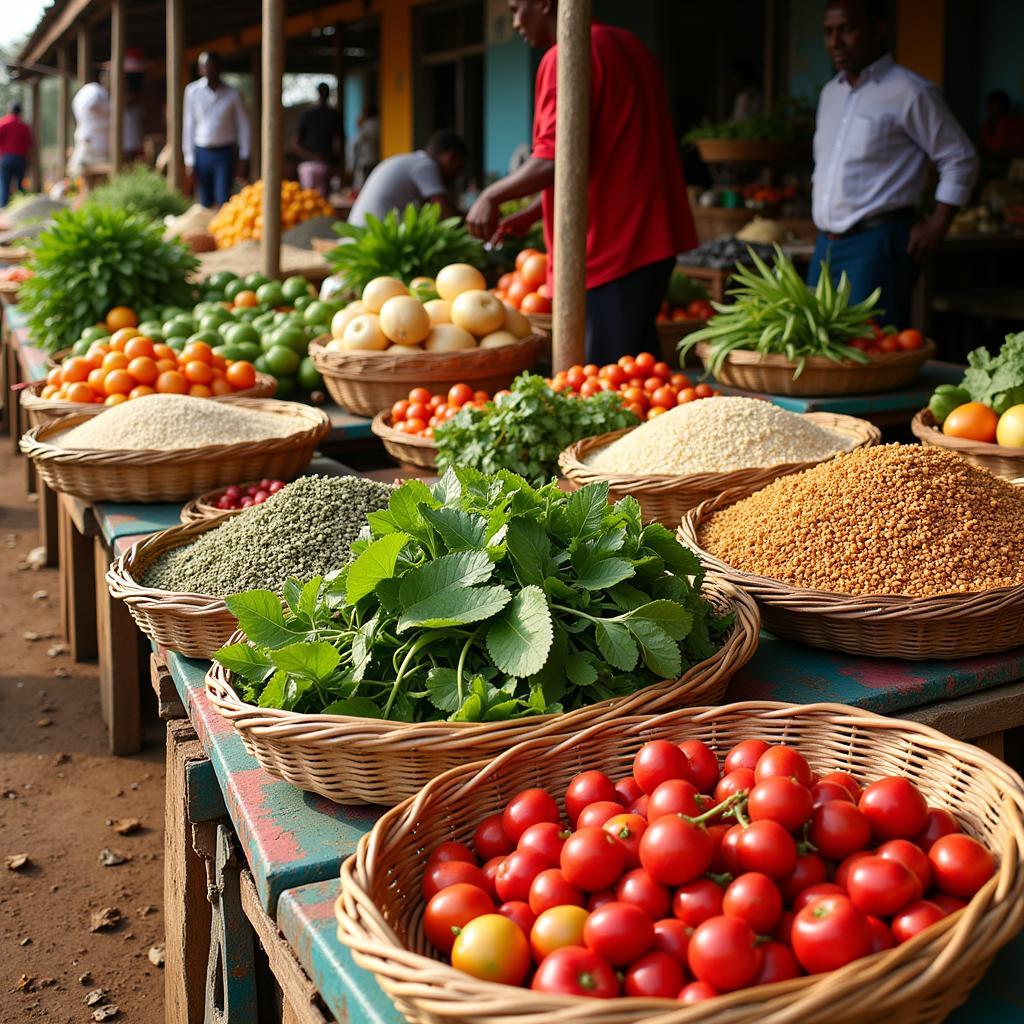The Diverse World of African Crops: A List and Beyond
Africa, a continent teeming with life and diversity, boasts a rich agricultural heritage. From ancient grains to exotic fruits, the list of African crops is as varied as the continent’s landscapes and cultures. This exploration delves into the heart of African agriculture, revealing not just a list of crops but also their significance, challenges, and the promising future they hold.
Staple Crops: The Backbone of African Diets
Across the African continent, certain crops form the cornerstone of diets and traditions. These staples, often deeply ingrained in local cultures, provide essential carbohydrates and nutrients:
- Maize: Introduced from the Americas centuries ago, maize has become a dietary staple in many African countries, particularly in the south and east. It’s versatile, used in everything from porridge to bread.
- Sorghum: This drought-tolerant crop thrives in arid and semi-arid regions. Sorghum is ground into flour for porridge, bread, and beverages and is also important for livestock feed.
- Millet: Another resilient grain, millet thrives in hot, dry conditions and is a vital food source in the Sahel region. Like sorghum, it’s used in various dishes and for brewing.
- Cassava: A root crop cultivated across sub-Saharan Africa, cassava is a major source of calories. It’s drought-tolerant and can grow in poor soil conditions, making it a crucial food security crop.
- Yams: Found in both West and Central Africa, yams are a significant source of carbohydrates. They play a crucial role in ceremonies and celebrations, reflecting their cultural importance.
 African Market Displaying Fresh Produce
African Market Displaying Fresh Produce
Cash Crops: Driving Economic Growth
Beyond sustenance, African agriculture plays a vital role in economic development. Cash crops, grown for sale and export, contribute significantly to many countries’ GDPs:
- Coffee: Ethiopia, the birthplace of coffee, along with countries like Kenya and Uganda, are renowned for their high-quality Arabica beans. Coffee exports are a major source of income for many farmers.
- Cocoa: West Africa, particularly Côte d’Ivoire and Ghana, dominates global cocoa production. This “food of the gods” is the primary ingredient in chocolate, making it a valuable export.
- Cotton: Grown across the continent, cotton is a significant fiber crop. From clothing to textiles, its uses are diverse, making it a key player in the global textile industry.
- Tea: Kenya and Malawi are major tea exporters, with their highland plantations producing some of the world’s finest teas. The tea industry employs a significant portion of the workforce in these countries.
- Flowers: Kenya, in particular, has blossomed into a major exporter of cut flowers, supplying roses and other blooms to international markets. This industry provides significant employment opportunities, especially for women.
Fruits, Vegetables, and Beyond: A Tapestry of Flavors
African agriculture extends far beyond staples and cash crops. The continent is a treasure trove of unique fruits, vegetables, and other crops, each contributing to the diverse tapestry of flavors:
- Exotic Fruits: From the sweet and tangy baobab fruit to the creamy avocado and the spiky durian, Africa offers a cornucopia of exotic fruits. These fruits are not only delicious but also rich in vitamins and antioxidants.
- Indigenous Vegetables: Amaranth, spider plant, jute mallow – these are just a few of the many indigenous vegetables gracing African tables. Often overlooked, these nutrient-packed greens offer immense culinary and nutritional value.
- Nuts and Seeds: The continent is a significant producer of groundnuts (peanuts), cashew nuts, and sesame seeds. These crops are not only important for local consumption but also contribute to global trade.
Challenges and Opportunities: Shaping the Future of African Agriculture
African agriculture faces numerous challenges: climate change, limited access to markets, and inadequate infrastructure. However, with these challenges come opportunities. Innovation, sustainable practices, and empowering smallholder farmers hold the key to unlocking the full potential of African agriculture.
african-american history museum tickets
Conclusion: African Crops – A Source of Sustenance, Growth, and Promise
From staples like maize and cassava to cash crops like coffee and cocoa, the list of African crops reflects the continent’s agricultural diversity. These crops are not just food sources; they represent livelihoods, traditions, and a promising future. By investing in sustainable farming practices and empowering local farmers, Africa can harness its agricultural potential to ensure food security and drive economic growth for generations to come.
